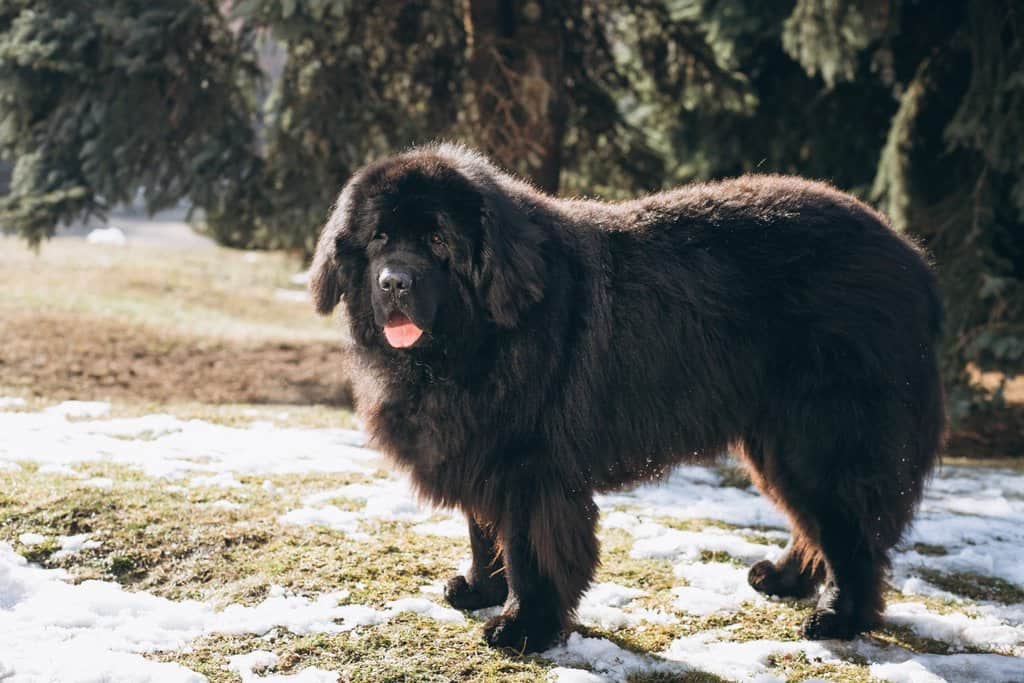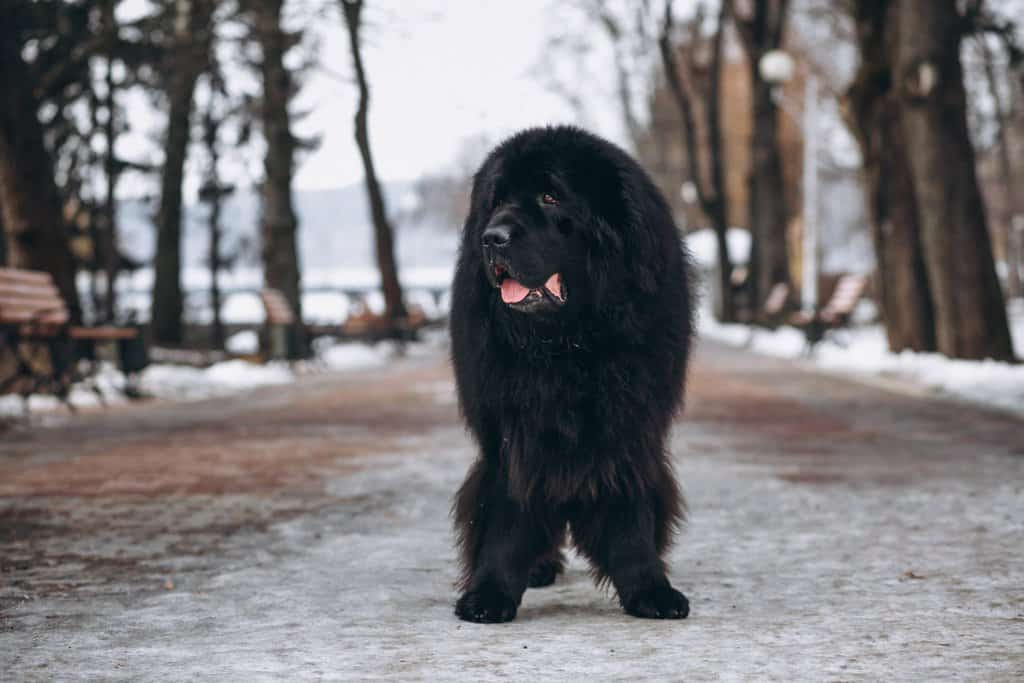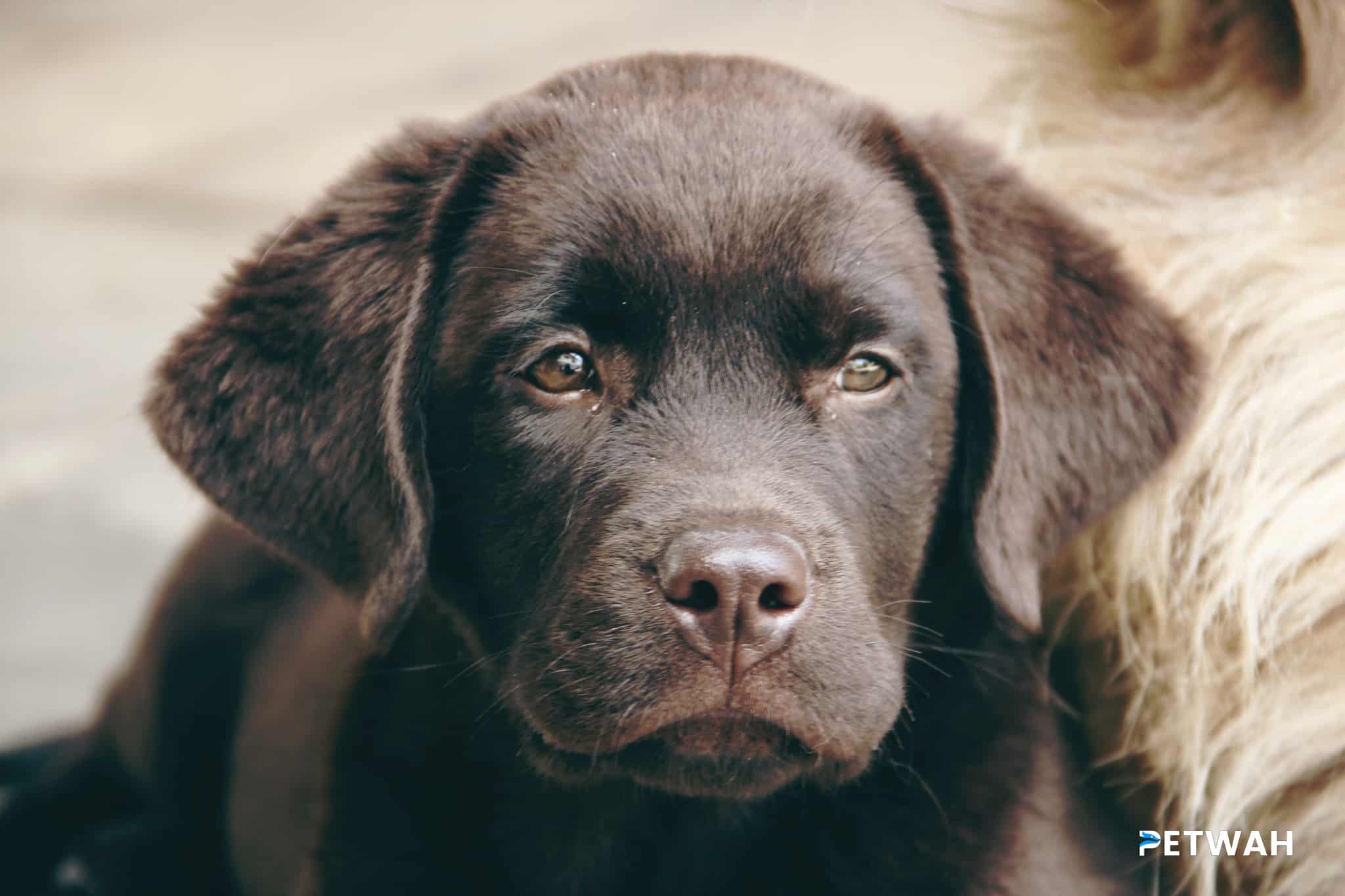Newfoundland dogs are known for their gentle, sweet, and patient temperament. They are generally calm and composed dogs, and they are not known to be overly aggressive or territorial. Here are some more details about the typical temperament of Newfoundland dogs:

- Affectionate and Loyal – Newfoundlands are known for being very affectionate and loyal to their owners. They enjoy spending time with their owners, and they are often described as being “velcro dogs” because they like to be close to their owners as much as possible. They are very social dogs and love being around people.
- Friendly – Newfoundlands are generally very friendly dogs, and they get along well with other animals and people. They are not typically aggressive or territorial, and they are often used as therapy dogs because of their friendly and gentle demeanor.
- Intelligent and Willing to Please – Newfoundlands are intelligent dogs, and they are generally eager to please their owners. They are relatively easy to train, and they respond well to positive reinforcement training techniques. They are also very good at problem-solving and are able to learn new tasks quickly.
- Patient – Newfoundlands are known for their patience, and they are very good with children. They are able to tolerate the roughhousing and energy of children without getting agitated or aggressive.
- Protective – Newfoundlands are known to be protective of their owners and their property. They are good watchdogs and will bark to alert their owners if they sense a potential threat.
- Calm – Newfoundlands have a very calm and composed temperament, and they are not prone to anxiety or nervousness. They are able to handle stressful situations without becoming agitated or upset.
Newfoundland dogs’s temperament makes them great family pets. They are affectionate, friendly, and patient, making them a good choice for families with children or other pets. Their intelligence and willingness to please make them relatively easy to train, and their protective nature makes them good watchdogs.
How do Newfoundland’s interact with their owners and other animals?
Newfoundland dogs are known for being very friendly and sociable, both with their owners and other animals. Here’s a more detailed look at how they interact with their owners and other animals:
With their owners:
Affectionate: Newfoundland dogs are known for being very affectionate and loving towards their owners. They enjoy spending time with their owners and will often follow them around the house or yard.
Loyal: Newfoundlands are very loyal dogs and will form strong bonds with their owners. They will often greet their owners enthusiastically when they come home and will be happy to see them.
Protective: Newfoundlands are protective dogs and will be quick to defend their owners if they sense a threat. They are good watchdogs and will bark to alert their owners if they sense danger.
Obedient: Newfoundland dogs are generally obedient and eager to please their owners. They are relatively easy to train and respond well to positive reinforcement training techniques.
With other animals:
Friendly: Newfoundlands are generally very friendly with other animals, including dogs, cats, and even small animals like hamsters or guinea pigs. They are not typically aggressive or territorial and will usually get along well with other pets.
Playful: Newfoundlands enjoy playing with other animals and will often initiate playtime. They are generally gentle with other animals, even those that are smaller than them.
Calm: Newfoundlands have a very calm temperament, and this extends to their interactions with other animals. They are not easily agitated or upset and are able to remain calm in most situations.
Social: Newfoundlands are social dogs and enjoy being around other animals. They are able to read the body language of other animals and adjust their behavior accordingly.
Overall, Newfoundland dogs are known for being friendly, calm, and sociable with both their owners and other animals. They are protective of their owners but are generally not aggressive towards other animals. With proper socialization and training, they can make great family pets and get along well with other pets in the household.
If you liked this article (or if it helped at all), leave a comment below or share it with friends, so they can also know What is the typical temperament of Newfoundland dogs and how do they interact with their owners and other animals?







